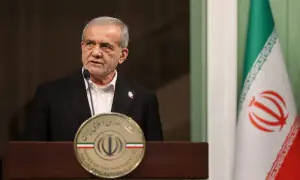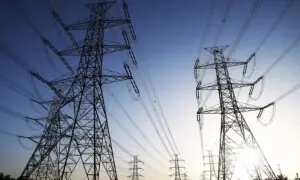Taliban in, funding out? Afghan ex official fears climate gains 'jeopardised'
4 min readBy Annie Banerji
NEW DELHI: From creating a national carbon inventory to securing more than $90 million for green projects, gains Afghanistan has made in tackling global warming could be jeopardised with the Taliban in power, a top former Afghan climate official said.
Samim Hoshmand said key programmes, including a $21.4 million rural solar energy project backed by the international Green Climate Fund (GFC), were in limbo after the Islamist militant group captured the capital Kabul on Aug. 15.
Hoshmand, who served as climate change director at the National Environmental Protection Agency (NEPA) before the takeover, helped develop a national climate action plan and emissions inventory.
"These are all activities which I worry could be jeopardised," he said by phone from a village outside Tajikistan's capital Dushanbe, where he fled after receiving death threats from Taliban-freed environmental offenders.
Other green projects that could be affected include a $36 million effort backed by the Global Environment Facility and other funders to boost renewable energy, make agriculture and forestry more climate-resilient and safeguard ecosystems, Hoshmand said.
He described winning the funds for the projects as a huge achievement since "these finance mechanisms are painfully slow and almost impossible (to access) for fragile countries like ours".
Yannick Glemarec, executive director of the GFC, confirmed that continuing disbursement of money for the fund's Afghanistan project - created to provide rural areas with clean energy via solar mini-grids - had been "put on hold" pending a risk assessment.
"Whenever you have a change in the political landscape, you have to take a hard look at what this means in terms of risks," he told the Thomson Reuters Foundation.
Hoshmand, an ex-negotiator at U.N. climate talks, said without foreign support Afghans could be pushed into more hunger, poverty and conflict in a country already battling extreme weather, from crippling droughts to flash floods.
Afghanistan is "one of the most vulnerable nations to climate change impacts in the world", the World Bank has noted.
Hoshmand said that if earning a living became more difficult as a result of extreme weather and help was unavailable, the country could see worsening losses.
"When people are facing a natural threat and get hungry, they can do anything to survive. They can cut jungles, destroy ecosystems, deplete natural resources," he said.
"That's what I'm really concerned about."
COAL EXPANSION?
Hoshmand, 30, was also in charge of enforcing an international ban on use of ozone-depleting substances such as some refrigerants used in refrigerators and air conditioners.
That has now made him a target among illegal traders, some of whom he helped put behind bars but who were released by the Taliban as they swept major Afghan cities.
Facing threats, Hoshmand escaped to neighbouring Tajikistan carrying nothing but the clothes on his back and leaving behind years of hard work, including groundwork for the COP26 climate summit that starts from Oct. 31 in Scotland.
"I was fully prepared for COP26," he said. "But all of sudden everything has changed, and I've become like nothing."
"I'm looking for a job just to survive, to get some food," he said.
With Afghanistan's environmental agency now shut down, he said it was unlikely the country would be represented at the COP26 talks, where he had planned to submit updated climate pledges.
Regardless of who is in charge, Afghanistan needs help to deal with climate threats, he said.
He urged foreign donors to look beyond politics and engage the Taliban for the sake of more than 30 million Afghans, who face increasing risks of internal displacement due to wild weather.
Without international aid to promote clean energy, he warned that the Taliban could resort to ramping up use of Afghanistan's highly-polluting coal reserves to save the cash-strapped economy.
"The current government does not have cash to pay the salaries of their employees. How can they spare anything for climate change?," asked the former negotiator.
Afghanistan imports most of its electricity from neighbouring countries including Iran, generating only a small portion domestically, according to its main power utility.
With little industry of its own, Afghanistan accounts for far less than 1% of global greenhouse gas emissions but is suffering serious impacts from drought and other extreme weather.
The international community needs to engage with the Taliban government and "provide them with some incentives to build renewable energy resources," he said.
"If we leave them on their own, they will definitely (rely on coal)."
For the latest news, follow us on Twitter @Aaj_Urdu. We are also on Facebook, Instagram and YouTube.



























Comments are closed on this story.